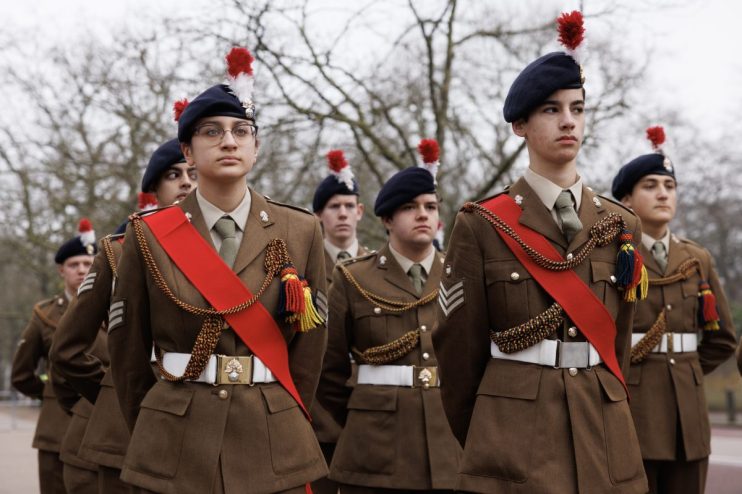Will it work? National service

It’s an election year. Politicians are giving us a barrage of policies. But we often forget to ask the most important question: will they actually work? In this column Sam Fowles take policies on their own terms and asks whether they solve the problem they’re supposed to solve. This week: national service.
It’s the sort of policy we expect to see rolled out as a “hail Mary” at the end of a failed campaign. Instead, the Conservative plan for “national service” has dominated the first week.
What’s the Plan?
Eighteen-year-olds will be forced to spend a year in the military or “volunteer” one weekend a month “in the community”. There’s nothing “voluntary” about the project. Kids will be punished if they don’t work for free (although no one seems to have decided how). It’s forced labour.
Reasons to Get Excited
It’s not clear what “problem” this is intended to solve. If it’s supposed to shore up our defence, it’s an instant dud. To quote the government’s own analysis (as of 23 May), “the demanding, increasingly technical nature of defence today is such that we require highly trained professionals…” and “If potentially unwilling National Service recruits were obliged to serve alongside… it could damage morale, recruitment and retention.” The former Navy chief of staff called the plan “bonkers”.
The Prime Minister has, instead, talked of national service as a vehicle for social cohesion, claiming “it will be really brilliant for young people to have this rite of passage that they go through with everything that it teaches them and just keeps them out of trouble.
“I’ve talked to so many parents worried about what their kids are doing in the evenings, at the weekends.”
Does it Add Up?
There’s no evidence that national service helps social cohesion. When researchers at Kings College London analysed people who participated in national service (in the UK and abroad), they found them less likely to support cherished national and democratic institutions. In the UK, members of the last generation to experience national service are more likely to be prejudiced against minorities, seek to deny others opportunities that they enjoyed and blame others for their problems.
Ultimately the plan suffers from a fundamental flaw: you can’t force people to be socially cohesive (unless you’re a totalitarian dictatorship). Polling shows that the support for the plan is concentrated amongst the elderly (i.e. those who won’t have to do it). The young are overwhelmingly opposed. Rather than bringing people together, the policy embodies the sort of intergenerational vindictiveness which permanently divides societies. The most privileged generation in history gleefully forcing the young to work for free.
It’s difficult to see why young people will embrace a society which treats them like feckless layabouts. Young people have watched their life chances being not so slowly eroded by the policy decisions of older generations. Austerity, Brexit, lockdown, tuition fees, climate change and the housing crisis are all policy decisions taken by older generations for which the young must pay the price. When they complain, they’re called snowflakes and told to buy less avocado toast. Yet young people willingly put their lives on hold (often at great cost to their education and mental health) to protect older generations during the pandemic.
If the government wants to improve social cohesion, it might start by giving young people a reason to be enthusiastic about British society, rather than trying to force them to conform. Today’s national servants will be tomorrow’s politicians. Will they be willing to shoulder the burden of pensions and care for the generation that condemned them to forced labour while doing nothing itself?
Scores on the Doors
Electoral appeal: 2/5
Value for money: 0/5
Effectiveness: 0/5
Originality: 0/5
Overall: 2/20
Let’s be honest: it’s a stunt which only appeals to those who think public policy should be based on “Carry On Sergeant”.